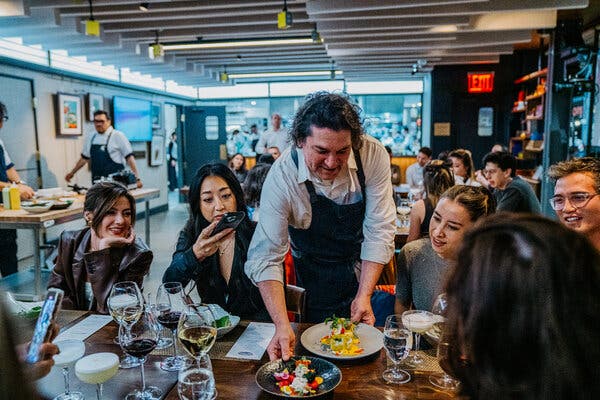Ceviche, quinoa, sushi — the nation’s kaleidoscopic culinary traditions are earning popularity and prestige around the world.
Listen to this article · 11:08 min Learn more
When the Peruvian-born restaurateur Humberto Leon was growing up in Los Angeles in the 1980s, his high-school classmates had barely heard of Peru, much less its cuisine.
“People thought it was the same place as Puerto Rico,” he said. “If you met another Peruvian, you would hug them, and immediately start talking about food.”
Today, that conversation has gone global. Peruvian food has pulled off the culinary hat trick of becoming both popular and prestigious around the world.
Last year, Central, in Peru’s capital, Lima, landed at No. 1 on the influential World’s 50 Best Restaurants list, the first time a South American restaurant had joined destinations like Eleven Madison Park, Noma and El Bulli at the top. Months later, the United Nations chimed in, placing Peruvian ceviche on UNESCO’s list of Intangible Cultural Heritage traditions, alongside Neapolitan pizza and Korean kimchi. Restaurants that spotlight Peruvian classics, Peruvian-style sushi and cocktails based on pisco (the clear liquor made from grapes in Peru’s wine country) have proliferated in Miami, New York City, California and Spain.
The international acclaim that has powered this “boom gastronomica” feels overdue to many Peruvians, for whom their unique national cuisine is a point of pride and unity. The country’s biodiversity — it’s a birthplace of modern corn, potatoes, tomatoes and chiles — has long been considered extraordinary. So has its cultural and culinary diversity.
In the 200 years since Peru gained independence from Spain and began welcoming immigrant workers, its indigenous ingredients — tropical fruits, mountain grains like quinoa and seafood from 1,500 miles of Pacific coast — have merged with soy sauce and French fries, sashimi and pesto into a cuisine that isn’t quite like any other.
Thank you for your patience while we verify access.
